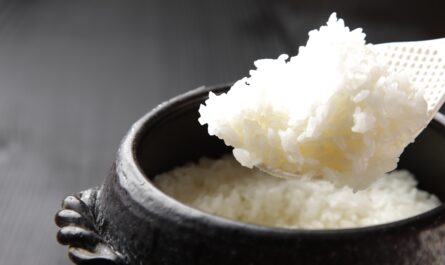Sushi lovers around the world know that the secret to great sushi lies in the rice. Yet, even the most seasoned home cooks can sometimes encounter the pesky problem of overcooked sushi rice. If youve ever found yourself in this sticky situation, dont worry youre not alone, and there are solutions to get you back on track to making perfect sushi.
In this article, well delve into everything you need to know about overcooked sushi rice, from identifying its causes to mastering techniques that will transform your sushi-making experience. Whether youre a seasoned chef or a beginner, our guide will help you understand and address this common cooking challenge. Lets get started!

Understanding Overcooked Sushi Rice
What is Overcooked Sushi Rice?
Overcooked sushi rice occurs when rice grains become too soft and sticky, losing their distinct texture and structure. This can result in a mushy consistency that is difficult to work with, particularly when making sushi rolls.
Why It Happens
Several factors can lead to overcooked sushi rice. Common causes include using too much water, cooking for too long, or not rinsing the rice thoroughly. These factors disrupt the balance needed for that perfect, slightly sticky yet firm texture that sushi rice is known for.
Causes of Overcooked Sushi Rice
Excess Water
One of the primary reasons for overcooked sushi rice is the use of too much water. When rice absorbs too much moisture, it becomes overly soft and sticky, making it difficult to shape into sushi rolls.
Extended Cooking Time
Cooking rice for too long is another culprit. Even a few extra minutes can lead to rice that is too soft, losing its characteristic bite. Timing is crucial when preparing sushi rice.
Insufficient Rinsing
Rinsing rice removes excess starch, which can contribute to a gummy texture if not properly washed away. Skipping or inadequately performing this step can lead to overcooked sushi rice.
Fixing Overcooked Sushi Rice
Immediate Solutions
If you find yourself with overcooked sushi rice, dont panic. While it may not be ideal for sushi, it can still be used in other dishes. Transform it into a rice pudding or a savory dish where texture is less critical.
Adjusting the Texture
To salvage overcooked sushi rice for sushi, try cooling it quickly. Spread the rice on a baking sheet and place it in the refrigerator. This can help to firm up the rice slightly, making it more manageable for sushi preparation.
Preventing Overcooked Sushi Rice
Proper Rice-to-Water Ratio
Ensuring the correct rice-to-water ratio is essential. Typically, a 1:1.25 ratio of rice to water is recommended for sushi rice. This provides enough moisture for cooking without making the rice too soft.
Perfecting Rinsing Technique
Rinsing your rice until the water runs clear is crucial. This removes excess starch and helps prevent a gummy texture. This step is key to achieving the perfect sushi rice.
Monitoring Cooking Time
Pay close attention to cooking time. Use a timer to prevent overcooking, and remember that rice will continue to cook slightly after being removed from heat. Resting the rice is also important for texture.
Additional Tips for Sushi Rice Perfection
Using the Right Rice
Choosing the correct type of rice is fundamental. Opt for short-grain Japanese rice, which is specifically cultivated for sushi. For more on rice types, visit this rice guide.
Seasoning Sushi Rice
Proper seasoning is vital. A balanced mix of vinegar, sugar, and salt not only enhances flavor but also contributes to the rice’s texture. Learn how to prepare flavored sushi rice for different tastes.
Using a Rice Cooker
Consider using a rice cooker, which can greatly simplify the process. A good rice cooker will control the cooking time and temperature precisely, reducing the risk of overcooked sushi rice.

FAQs About Sushi Rice
Can I Fix Overcooked Sushi Rice?
While you can’t completely reverse the overcooking, you can use techniques like cooling to slightly improve the texture for sushi. Alternatively, use the rice in dishes where texture is less critical.
Whats the Best Way to Prevent Overcooked Sushi Rice?
Focus on the correct rice-to-water ratio, thorough rinsing, and precise cooking times. These steps are key to achieving perfect sushi rice every time.
Can I Use Any Rice for Sushi?
For authentic sushi, use short-grain Japanese rice. It has the ideal characteristics for sushi, unlike other rice types which may not provide the desired texture. For more information on rice types, check out this rice article.
Creating perfect sushi rice requires attention to detail and practice. With the tips and techniques shared here, youre on your way to mastering the art of sushi making. Happy cooking!
This article contains affiliate links. We may earn a commission at no extra cost to you.




